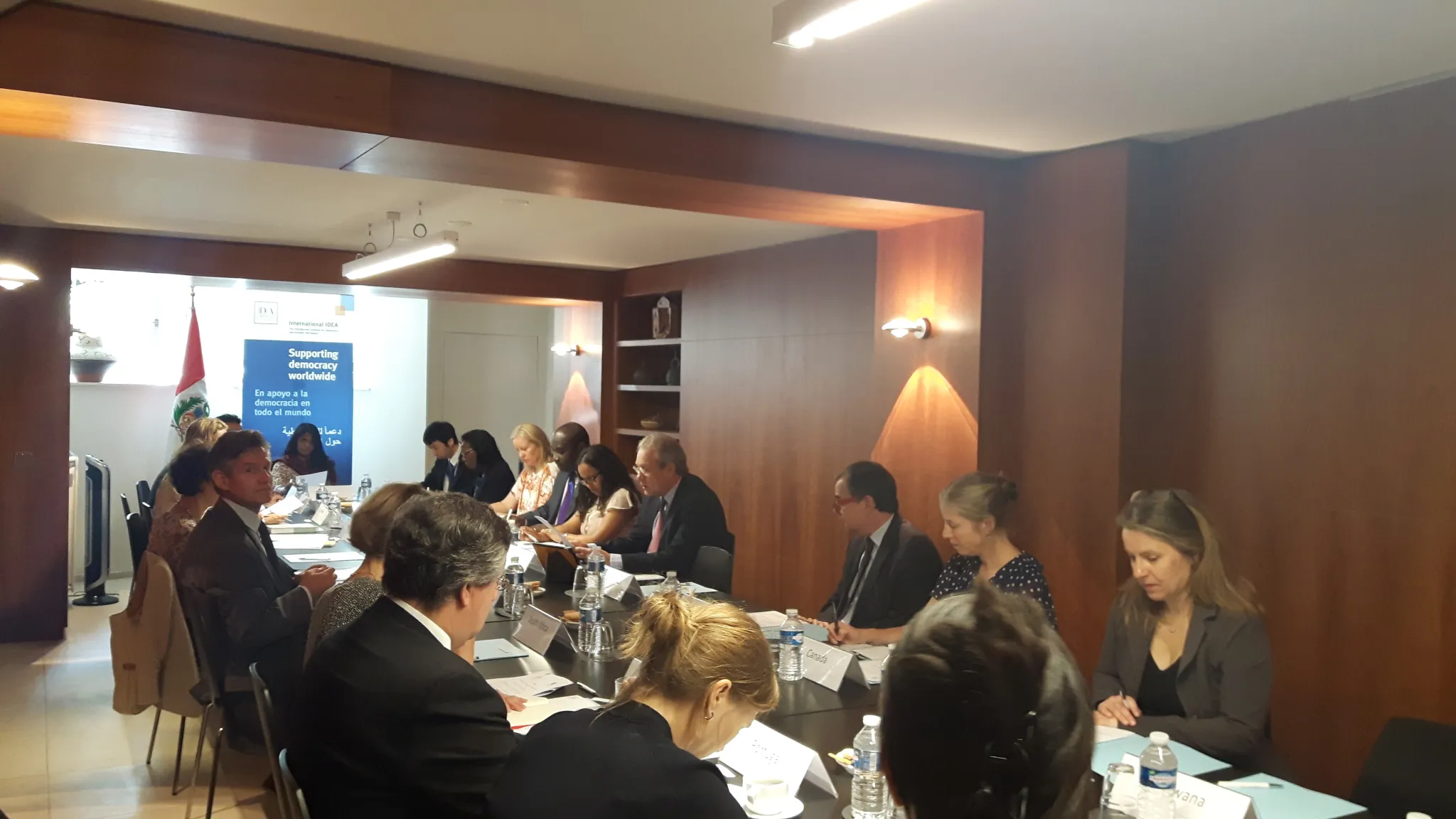"Anti-corruption at the EU level" discussed during Meeting of Representatives of International IDEA Member States

Corruption not only erodes public trust in government and democratic institutions, it also affects negatively budgets and national economies. The European Commission seeks to enhance public trust in government and institutions by combating corruption in the European Union (EU) and Member States.
During the first meeting in 2017 of representatives of International IDEA Member States in Brussels on 10 July 2017, Irina Stefuriuc, who is leading the anti-corruption team in the Directorate General of Migration, Citizenship and Home Affairs of the European Commission (EC), presented the work and initiatives on anti-corruption at the EU level. The meeting was chaired by Ambassador Gonzalo Gutiérrez, Local Chair of the International IDEA Council of Member States and Ambassador of Peru to Belgium and Luxembourg, and Head of the Peruvian Mission to the EU. Representatives of 24 Member States of International IDEA attended the meeting.

Directorate General of Migration, Citizenship and Home Affairs of the European Commission.
Photo: Gosia Calabro | International IDEA
The EC is vested with competences to combat corruption when it offsets benefits of the EU internal market, or distorts its functioning. Initiatives to counter corruption cover a broad range of policy areas.
At the EU level, it is difficult to measure real levels of corruption. With the view to report on the impact of corruption on GDP and national economies on a regular basis, the EC constantly tries to improve indicators. Also, regular surveys are conducted to identify trends related to citizens’ and businesses’ experiences with corruption, and/or their perception of corruption.
Anti-corruption is also on the global agenda, and has been included in the Agenda 2030 for Sustainable Development. Various measures were agreed upon at the G20 level, including in the framework of the fight against illegal trade in wildlife and sports. International treaties and conventions were signed, mainly via United Nations (UN) and Organisation for Economic Co-operation Development (OECD) institutions and agencies. The EU supports these initiatives and related evaluation and control efforts.
At the EU internal level, anti-corruption measures and awareness are mainstreamed within EU trade policy and all related agreements, budgetary and financial oversight policies, public procurement policy and in all measures taken to increase transparency and the protection of whistle-blowers. In addition, the EC builds the capacity of EU Member States on anti-corruption, and takes preventative measures, including sanctions when necessary, against corruption and fraud within EU institutions. Most visible are the annual country-specific recommendations of the EC to EU Member States, within the framework of the European Semester, integrating anti-corruption.
During the ensuing discussion among participants, questions were asked about the EC’s anti-corruption actions outside the EU, tax harmonization efforts to combat tax heavens, civil society support and interregional cooperation on related matters.
The Member State representatives present at the meeting received a report by Ambassador Gutiérrez on the 2017 programme and activities of the Peruvian Chair of the Council of International IDEA Member States. Details were provided on the upcoming Annual Democracy Forum 2017, scheduled to take place in Lima, Peru on 21-22 November 2017. The topic of the Forum was derived from the central theme of the Peruvian Chair of the International IDEA Council, “Corruption: a threat towards a democracy of quality”.




